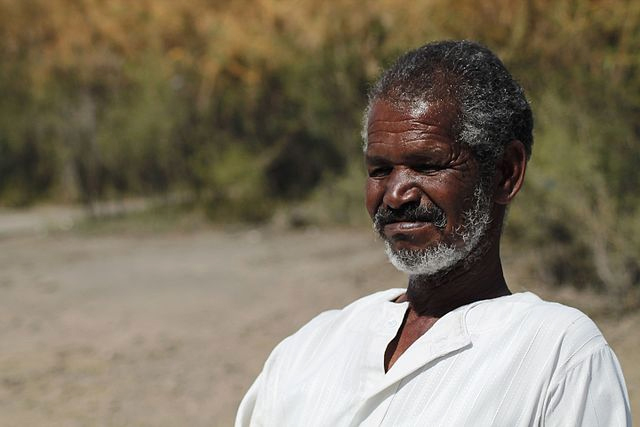Two weeks ago, the Washington Post published a scathing opinion piece by an American scholar about discrimination by the Egyptian government against their Nubian citizens. Amy Austin Holmes, who teaches at the American University in Cairo, focused her analysis on the recent reelection of Abdel el-Sisi as President of Egypt and the ways his government has repressed the Nubians.

During the run-up to the Egyptian presidential election in late March 2018, Prof. Holmes writes, the state media launched a wave of inciting stories against the Nubian minority in the country—and against foreigners such as herself who have had contacts with the Nubian people. One talk show host cited her research on the Nubians, and particularly her visit to the village of Nasser El Nuba, as evidence of an international conspiracy supporting anti-Egyptian elements within their nation.
She argues that the racism exhibited by the media against the Nubians is a way of discrediting their peaceful dissent and their attempts to gain their constitutional rights to the return of some lands that were historically theirs in Old Nubia. The “proof” cited for their disloyalty has been their contacts with international elements—scholars such as Prof. Holmes.

Evidence of the discrimination the Nubians experience in Egypt can also be found in the fact that no schools or universities in the country teach the Nubian language. But Holmes focuses on the point that the Egyptian constitution of 2014 did include some Nubians in the drafting process; as a result, article 236 included the provision that guaranteed to them the “right to return” at least to some of the lands from which they were displaced when the Aswan High Dam was built in the 1960s. She discusses the peaceful protest by some Nubian leaders in Aswan in September 2017, where they sang protest songs and marched along an area called the Corniche to call attention to their constitutional rights.
They faced an array of tanks and armored personnel carriers deployed in the city. They were arrested and languished in prison for two months without even having beds until one of their members, Gamal Sorour, died because of a diabetic coma. After Sorour died, the Nubians who had been detained in prison were released, still to face trial. The case has dragged on and has become quite controversial. The next court date has been set for May 20.
Holmes concludes her essay by citing the treatments of some of her colleagues who have, like her, studied and visited Nubian communities. One scholar was sentenced to death in a trial that she refers to as “farcical.” Another disappeared and his body was later found bearing evidence of his having been tortured. She argues rather persuasively that the government of President el-Sisi is deeply insecure, and highly threatened by the Nubian pleas for justice.